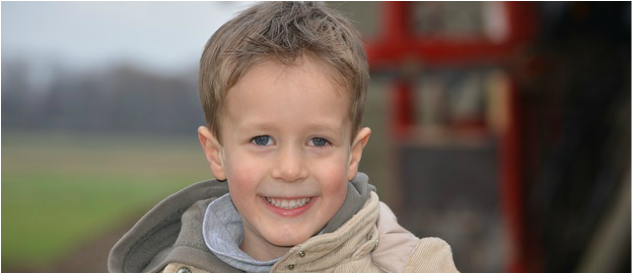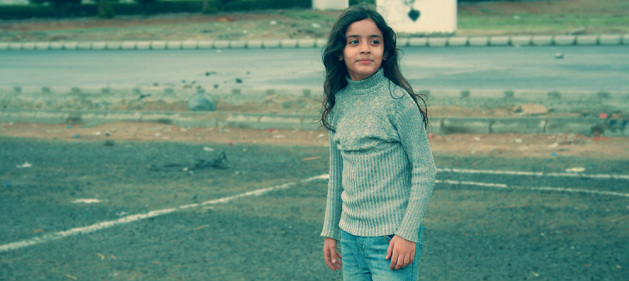|
Web Reprint, www.kidshealth.org, excerpts Depression isn’t just bad moods and occasional melancholy. It’s not just feeling down or sad, either. These feelings are normal in kids, especially during the teen years. Even when major disappointments and setbacks make people feel sad and angry, the negative feelings usually lessen with time. But when a depressive state, or mood, lingers for a long time—weeks, months, or even longer—and limits a person’s ability to function normally, it can be diagnosed as depression. Recognizing Depression If you think your child has symptoms of depression, it’s important to take action. Talk with your child and your doctor, or others who know your child well. Many parents dismiss their concerns, thinking they’ll go away, or avoid acting because they may feel guilty or prefer to solve family problems privately. For a long time, it was commonly believed that children did not get depressed and that teenagers all went through a period of “storm and stress,” so many kids and teens went untreated for depression. Now more is known about childhood depression, and experts say it’s important to get kids help as soon as a problem is noticed. Parents often feel responsible for things going on with their kids, but parents don’t cause depression. However, it is true that parental separation, illness, death, or other separation can cause short-term problems for kids, and sometimes can trigger a problem with longer-term depression. This means that if your family is going through something stressful it’s usually helpful to turn to a counselor, therapist, or other expert for support. It’s also important to remind your child that you’re there for support. Say this over and over again—kids with depression need to hear it a lot because sometimes they feel unworthy of love and attention. Remember, kids who are depressed may see the world very negatively because their experiences are shaped by their depression. They might act like they don’t want help or might not even know what they are really experiencing. Getting help for your child Your first consultation should be with your child’s pediatrician, who probably will perform a complete examination to rule out physical illness. If depression is suspected, the doctor may refer you to a specialist who can diagnose and is qualified to treat depression. These health professionals can help, but it is important that your child feels comfortable with the person. If it’s not a good fit, find another. Your child’s teacher, guidance counselor, or school psychologist also might be able to help. These professionals have your child’s welfare at heart and all information shared with them during therapy is kept confidential. What can I do to help? Most parents think that it’s their job to ensure the happiness of their kids. When your child’s depressed, you may feel guilty because you can’t cheer him or her up. You also may think that your child is suffering because of something you did or didn’t do. This is not necessarily true. If you’re struggling with guilt, frustration, or anger, consider counseling for yourself. In the end, this can only help both you and your child. Other ways to help:
Depression can be frightening and frustrating for your child, you, and your entire family. With professional advice and your help, your child can start to feel better and go on to enjoy the teen and adult years. Courtesy of Motivated! magazine. Used with permission.
0 Comments
Koos Stenger When our son Pete was three, he was diagnosed with leukemia, and from one moment to the next, our lives changed drastically. There are no instruction manuals that can prepare you for how to cope when your child is facing a life-threatening disease. Even though we found shelter in the loving arms of Jesus, our tender Shepherd, we still had to find a way to face the scary events of the following weeks and months. Finally, there was light at the end of the tunnel: The doctors pronounced Pete healed. But in reality the challenge was not over; years later, the ugly monster raised its foul head again, not once but twice. When the cancer returned the first time, we were in South Africa, an unfamiliar country with a different language, culture, and medical system from what we were used to. But the fears and pain were the same, along with the interminable waiting for the tiniest signs of improvement. The improvement did come, and again it seemed he was cured … until three years later, we were stunned to discover that our son’s cancer had returned yet again. Still only ten years old, Pete was facing his third bout with the illness. We cried and agonized. We didn’t understand God’s reasons, but we felt His presence ever by our side. I was pretty sure I could relate to how the apostle Paul must have felt when he wrote, “We are pressed on every side by troubles, but we are not crushed. We are perplexed, but not driven to despair. We are … never abandoned by God. We get knocked down, but we are not destroyed.” And so once more we held on desperately. Back at the hospital, the doctor was explaining that the best possibility for permanent healing was a bone marrow transplant, but everyone in our family had already been tested. None of us were a match. “Let’s test again,” he advised. The next week the doctor met us with a smile. “Your youngest son is a close enough match,” he said. It was no instant victory. Again it took days, weeks, and months before Pete was out of danger. But he pulled through and has been cancer-free for the past ten years. How do you survive a crisis? You hold the hand of the Shepherd, moment by moment, hour by hour, day by day. Article courtesy of Activated! magazine. Used with permission.
We work hard to create a world of structure and predictability for our children, with routines, a regular schedule, and consistent expectations. We aim to make their lives stable, safe, and secure. As they grow up, we hope that this early experience will center them, and that they will be solid in a world of flux and change. In addition to providing children a safe and secure beginning, we also have to prepare them for the ups-and-downs of life. One way is to foster a positive attitude towards change. Following are some steps that parents can take to prepare children for change: 1. Observe your children and note how they react to the prospect of change. Is there a pattern? Do they generally dig in their heels? Do they become anxious and fearful? Or do they look forward to new experiences? These patterns and attitudes can become the modus operandi as they grow into adulthood. The goal is to change negative patterns and attitudes now, before they become entrenched. 2. Talk with your children about their feelings before they face a new situation or impending change. Depending on the children’s age, temperament, and background, they may or may not be able to discuss their feelings directly. If children have trouble articulating how they feel, approach it indirectly. Perhaps bring up a parallel example from your own life and discuss how you felt at the time. With younger children, it is helpful to use a picture book in which the main character goes through similar experiences. 3. Discover the picture your children formed of the change. Children’s feelings about an impending change directly correlate to their understanding of what is happening. If they are telling themselves that they will move to a new neighborhood, and won’t have any friends, it makes sense that they are feeling sad and fearful. Ask them what they think the future will hold once the change occurs. 4. Look for catastrophic thinking. Are your children envisioning a catastrophic outcome, a worst-case scenario? Are they using words like never, always, everyone, and no one? “I’ll never make any friends at my school.” “Everyone already has friends.” “No one will want to be friends with me.” These statements might feel like reality to your children, but they are not. Challenge these statements and help your children develop a more balanced view of what the future may hold. If you repeatedly challenge catastrophic thinking, your children will pick up the technique and will begin to use it, too. 5. Prepare your children in case some of their fears become reality. Suggest alternative ways of making friends. If they are very shy or there are other obstacles, adjust suggestions accordingly. Also, ask the children if they can think of solutions. Teaching a child to be proactive as a response to change will have immeasurable benefits over a lifetime. 6. Allow your children to grieve their losses brought about by a change in circumstances. Acknowledge the losses as real and comfort them in their sadness. If children do not have the opportunity to express their sadness, it can heighten anxiety and possibly lead to depression. 7. When appropriate, ask children to try to envision a positive outcome to the change. Encourage them to think of all the wonderful possibilities that a change might bring. This exercise teaches them to think optimistically. 8. Call attention to their successes once the change has occurred and the children have adapted. Remind them how they’d pictured the change, and contrast it with the reality of the situation. This will help them to “reality test” future thinking. Article originally published in Motivated magazine. Used with permission. Photo by Mashael Al-Mehmadi via Flickr.
Flor Cordoba My four-year-old son, Ricardo, is “on the Lego trip.” Maybe it’s his age or the fact that he’s artistic and loves building things, but not a single day goes by that I don’t find him building something with his Lego. Sometimes I sit with him and build too. I am quite impressed with his cars, spaceships, and whatnot, so I put up with the fact that I have to go hunting around the house for tiny missing pieces almost every day. One day he came running to show me a new spaceship he had built, and accidentally bumped it against a doorway. The hapless little spaceship was thrown into what seemed a thousand pieces that went everywhere—across the floor and under the table, chairs, couches, and every other hard-to-get-at place in the room. Ricardo’s face registered total dismay. I tried to comfort him. “It’s okay. Now you can build another one and I’m sure it will be even better. Don’t get discouraged. Just pick up the pieces and build a new one.” But poor Ricardo was so downcast that he said he wasn’t going to try again. He slowly picked up the pieces and went to put them away. A few minutes later, he came bounding back with a brand-new spaceship. “You were right, Mom,” he said. “This is way better than the last one!” I was so proud of my little boy, and it taught me a lesson. How many times have I worked to build a dream, only to have it fall to pieces! Picking up the pieces and starting over is often even harder than getting started the first time, but with the faith of a little child, all things—even better things—are possible. Article courtesy of Motivated magazine. Used with permission. Photo by Mark Anderson via Flickr.
As a parent, temper tantrums are one of the most stressful and frustrating things you'll have to deal with, especially once your child hits the terrible twos. However, according to child psychologists, most children don't throw a tantrum just to be naughty or manipulative -- rather, the screaming is a symptom of the child's anger and frustration when they don't have the vocabulary to explain what's really wrong with them. Therefore, staying calm and learning to identify what's really bothering your child will help you to handle the situation quickly and effectively. Start with Step 1 below for more detailed information on handling your child's temper tantrum. Steps
Courtesy of Wikihow. Photo by Mindaugas Danys via Flickr.
By Dina Ellens I didn’t appreciate it much when I was younger, but looking back now, I realize the influence my father’s faith in God has had on me. I have fond memories of standing next to his (at the time) towering 6-foot frame, listening to him wholeheartedly singing hymns in church. My family was from Holland, and my father’s favorite songs were in Dutch. After leaving home and striking out on my own, one particular song would come back to me, especially when I was feeling discouraged or worried. Roughly translated, it goes like this: A little ship under Jesus’ care With the emblem of the cross flying there. It rescues all in need, Even though the sea stands tall and high And the storms do threaten nigh. We have God’s Son on board, And safety in His ward. This song connects to memories of an adventure from my childhood: It was 1953, and my parents had decided to emigrate from the Netherlands to the United States. We crossed the Atlantic on an old ocean freighter that had been converted to carry passengers. My two brothers and I loved the thrill of being on board a big ship. We spent our days exploring and in no time made friends with all the crew members. I was only four years old, but I can remember the ship’s smell of oil and tar mixed with a sea breeze, and it still fills me with the same feelings of adventure and excitement I felt the day we boarded the freighter in Rotterdam. Just how much of an adventure we were in for, we had no idea. After several days, our ship was caught in a storm near the Sargasso Sea, at the center of the infamous Bermuda Triangle. The stormy turbulence churned up the abundant floating mats of an alga called sargassum, which then got tangled around our ship’s propellers. The ship suddenly lurched to one side, knocking over passengers and furniture. Thankfully, no one in my family was injured, but with the propellers rendered useless, our ship bobbed helplessly in the stormy ocean. My father took the three of us children to our cabin and tucked us into bed. I can better understand now what thoughts must have been going through his mind, as he thought of his young family getting caught in these treacherous waters where so many ships and crew members have been lost. Instead of caving in to fear, though, my father prayed with us and sang that particular hymn. Even though the waves were tossing our ship, and we were lost and directionless in the stormy night, I never felt frightened. In the morning, the sea was calm once again, and the crew was able to make radio contact with the nearest port. We soon welcomed the sight of a sturdy black tugboat chugging in our direction. The tug pulled our huge but helpless freighter to the harbor at Newport News, Virginia, where it stayed in dry dock for two weeks for repairs. My four-year-old mind retained some memories of the event, such as the ship’s sudden lurch that made me lose my balance and roll under some furniture, and especially the secure feeling I felt as my father prayed and sang so reassuringly. My father taught us faith by his example of trusting God no matter what circumstances looked like. Whenever life’s problems have seemed large and threatening like the waves of that stormy sea, I’ve sung that little song and have never failed to feel encouraged and reminded of my father’s faith in the midst of the storm. Courtesy of Activated magazine. Used with permission.
By a father of three exceptional children I have been a special needs parent for over a decade and something that I learned along the way is that despite my very best efforts, at the end of the day, I’m only human. I get frustrated, overwhelmed, and on occasion say and do the wrong thing. One of the things that happens quite often to special needs parents is that the demand on us simply exceeds the resources we have available, be it emotional, physical, or financial. This demand is constant in many cases, and the strain over time becomes more and more difficult to carry. The stress can really take its toll. I feel that as special needs parents, we often don’t give ourselves enough credit or cut ourselves enough slack. Speaking for myself only, I have a tendency to be overly critical of myself, especially when I feel I’m failing at something, which is honestly, quite often. However, in reality, I’m failing to remember that I’m doing or trying to do things every day that most people simply couldn’t handle. We tend to become so accustomed to everything that we often focus more on our perceived losses or defeats than we do on our successes and victories. One of the things that I have always encouraged people to do is share their feelings. Venting, or expressing what we are going through, is something that is extremely important in special needs parenting. Again, speaking only for myself, I’m under constant and unforgiving pressure. These pressures can range from health or behavioral issues to simply trying to make ends meet. Some of this pressure I put on myself, but most of it is inherent to special needs parenting in general. There are times that my kids drive me crazy and I swear that my head is going to explode. For a long time this was like a double-edged sword. I would be so incredibly stressed out, overwhelmed, and frustrated. On top of that, I would feel an extreme sense of guilt for being stressed out, overwhelmed, and frustrated. The kids had no control over most of their behaviors, but I had this idea that, as their father, I was supposed to have this never-ending supply of patience. Instead I was always “a day late and a dollar short.” There were times that I was so far gone that I would go through a drive-thru to pick up dinner and when asked, “Can I take your order?”, I would answer, “I’ll take some sanity with a side order of patience and some peace and quiet for desert…oh…and…supersize that.” Apparently, this kind of stuff is not on the menu…anywhere! Trust me, I’ve tried everywhere. You can ask my wife. She was always mortified when I would place my order. Then one day, it hit me. I’m not sure how or why this happened, but I realized that I didn’t have to feel guilty for being frustrated, overwhelmed, and stressed out by my kids or their behavior. I guess I had felt like if I admitted that I was frustrated or overwhelmed by the challenges associated with raising three boys with special needs, that it somehow reflected poorly on them, or that I loved them less. I didn’t want anyone to think that about my kids because, while challenging, they are totally awesome, and I wouldn’t trade them for anything in the world. Admitting frustration with those challenges, or even with any or all of my kids, doesn’t mean they are bad and it certainly doesn’t mean that I somehow love them any less. What admitting this did mean however, was that I was human. I learned that not only was it normal to feel these things, but it was also healthy. This was such a powerful realization for me, and it changed my perspective considerably. I discovered that acknowledging these feelings, and even embracing them, provided a much-needed sense of relief. The relief really kicked in when I became comfortable enough with these feelings to not only admit them to myself, but share them publicly as well. While that may not appeal to everyone, and understandably so, it helped me to keep myself centered. I think that this is something particularly difficult for fathers. Society tells us that we are supposed to be almost emotionless and not feel these things and if as a man, you actually do have these feelings, God forbid you ever admit it. Look, we are human beings living in very difficult situations. These situations very often require sacrifice to the nth degree. Feeling frustrated, overwhelmed, or even resentful is completely normal, at least in my opinion. I also think that admitting these things is not a sign of weakness or even bad parenting. In fact, I would argue that it shows great courage and a deep unconditional love for our kids. Honestly, no one likes admitting things like this, but in doing so we get a better understanding of our limitations and ourselves. As far as I’m concerned, this helps to make me a better parent, and speaking for myself, I need all the help I can get. Article courtesy of Motivated magazine. Used with permission. Photo by David Castillo Dominici/FreeDigitalPhotos.net.
Crisis events such as natural disasters, violent acts, and serious accidents are frightening to children and adults. It is important for parents, teachers, and other caretakers of children to know how a crisis can affect children and how to help them deal with the trauma. Children who experience an initial traumatic event before they are eleven years old are three times more likely to develop psychological symptoms than those who experience their first trauma as a teenager or later. Children’s ability to deal with a traumatic event is primarily dependent on the reaction of the parent or those who are in a caretaking role. As adults, we need to acknowledge our concerns to children in appropriate ways, but balance this with clear explanations of the ways we together can cope with the situation successfully. It is not helpful to falsely minimize the danger, or fail to sufficiently answer a child’s questions regarding what happened. It is important to invite them to process what they are hearing, seeing, and feeling by listening supportively without judging or correcting their feelings. They may need to tell their story repeatedly. Writing, drawing, and play are effective mediums for children to process trauma. Allow them many ways to tell their story. Just as for adults, children often need to process the event numerous times before they can move beyond it effectively. If after a few days the child’s symptoms continue to substantially interfere with his daily functioning to the point the child is not eating, sleeping, or able to perform typical daily tasks, professional consultation is warranted. This does not mean the behaviors, fears, or anxieties have to be gone, but you can see continued gradual improvement. Four to six weeks after the event there should be definite signs of improvement in the child’s ability to deal with fears or anxieties related to the trauma. The longer negative behavior continues without any improvement, the more difficult it will be to resolve. Getting help in a timely manner prevents more severe problems from developing. Seek help from personnel who have specialized training in treating children’s trauma, from medical staff, or professional counselors. Some responses to help children deal with a crisis:
Courtesy of Motivated magazine. Used with permission. Encouragement for parents whose child is sick Words from Jesus, received in prophecy Watching your child suffer through an illness is usually far more difficult than enduring it yourself. But when you are faced with such a situation, remember that I can bring beauty and purpose out of even the saddest or most difficult circumstances. Whether your child is sick with a bad cold or flu, or endures a long-term affliction, or has been hospitalized, I am watching over your child. I love your child, and I do all things well. If you are facing such a heartbreak, remember that I know your child best and love him even more deeply and dearly than you. I am so proud of you for facing this great difficulty in your child’s life with faith and trust in Me. I know it’s not easy to go through. It’s heartbreaking. I’m so proud of you for trusting Me to bring you through, despite how difficult it is for you and your child at this time. I promise that I will bring you through. I and My angels are at your side to bring peace, comfort, and supernatural grace to see you through. I am sending waves of relief and touches of grace and healing to your child. I’m blessing you with healing, relief, hope, courage, faith, and the path to victory in these circumstances and difficulties. I will never allow you to endure more than you can bear. I will never allow your child more than he or she can bear. I will not fail to fulfill this promise in your child’s life. I will make a way of escape. Everything passes, even things that seem as if they’ll last forever. So during times when you find the battles of this life hard to bear, and they feel unending and unmerciful, know and trust My promise that they will not last forever. This will pass in My perfect time, and until the battle comes to an end, My grace will be poured out upon you in abundance. When your child goes through pain and difficulty, be encouraged to know that I am with him through it all. Even if healing doesn’t come immediately, you can know that I’m filling his life and heart and spirit with special treasures. It’s easy to feel that I am distant from you or your child when your child is sick or afflicted. But nothing could be further from the truth. It is in these times that I am closest to you and your loved one. It is one of the most difficult things in life to see a child suffer. But remember that My little ones behold My face, and in that beholding they receive strength to endure. Their spirits are strong and resilient, because they are close to Me. I give grace equal to the trial, even at such a young age. I give My grace to your child when he needs it most. I do not leave My children comfortless. Text copyright The Family International. By Lloyd Glenn Last summer my family had a spiritual experience that had a lasting and profound impact on us, one we feel must be shared. It’s a message of love. It’s a message of regaining perspective, and restoring proper balance and renewing priorities. In humility, I pray that by relating this story I might give you a gift my little son, Brian, gave our family one summer day last year. On July 22nd I was en route to Washington, D.C. for a business trip. It was all so very ordinary, until we landed in Denver for a plane change. As I collected my belongings from the overhead bin, an announcement was made for Mr. Lloyd Glenn to see the United Customer Service Representative immediately. I thought nothing of it until I reached the door to leave the plane and I heard a gentleman asking every male if he were Mr. Glenn. At this point I knew something was wrong and my heart sank. When I got off the plane a solemn-faced young man came toward me and said, “Mr. Glenn, there is an emergency at your home. I do not know what the emergency is or who is involved, but I will take you to the phone so you can call the hospital.” My heart was now pounding, but the will to be calm took over. Woodenly, I followed this stranger to the distant telephone where I called the number he gave me for the Mission Hospital. My call was put through to the trauma center where I learned that Brian, my three-year-old son, had been trapped underneath the automatic garage door for several minutes, and that when my wife had found him he was dead. CPR had been performed by a neighbor, who is a doctor, and the paramedics had continued the treatment as Brian was transported to the hospital. By the time of my call, Brian was revived and they believed he would live, but they did not know how much damage had been done to his brain, or to his heart. They explained that the door had completely closed on his little sternum right over his heart. He had been severely crushed. After speaking with the medical staff, my wife sounded worried but not hysterical, and I took comfort in her calmness. The return flight seemed to last forever, but finally I arrived at the hospital six hours after the garage door had come down. When I walked into the intensive care unit, nothing could have prepared me to see my little son lying so still on a great big bed with tubes and monitors everywhere. He was on a respirator. I glanced at my wife, who stood and tried to give me a reassuring smile. It all seemed like a terrible dream. I was filled in on the details and given a guarded prognosis. Brian was going to live, and the preliminary tests indicated that his heart was okay, two miracles in themselves. But only time would tell if his brain had received any damage. Throughout the seemingly endless hours, my wife was calm. She felt that Brian would eventually be all right. I hung on to her words and faith like a lifeline. All that night and the next day Brian remained unconscious. It seemed like forever since I had left for my business trip the day before. Finally at two o’clock that afternoon, our son regained consciousness and sat up, uttering the most beautiful words I have ever heard spoken. He said, “Daddy, hold me,” and he reached for me with his little arms. By the next day he was pronounced as having no neurological or physical deficits, and the story of his miraculous survival spread throughout the hospital. You cannot imagine our gratitude and joy. As we took Brian home we felt a unique reverence for the life and love of our Heavenly Father that comes to those who brush death so closely. In the days that followed there was a special spirit about our home. Our two older children were much closer to their little brother. My wife and I were much closer to each other, and all of us were very close as a whole family. Life took on a less stressful pace. Perspective seemed to be more focused, and balance much easier to gain and maintain. We felt deeply blessed. Our gratitude was truly profound. The story is not over! Almost a month later to the day of the accident, Brian awoke from his afternoon nap and said, “Sit down, Mommy. I have something to tell you.” At this time in his life, Brian usually spoke in small phrases, so to hear him say a sentence of that length surprised my wife. She sat down with him on his bed and he began his sacred and remarkable story. “Do you remember when I got stuck under the garage door? Well, it was so heavy and it hurt really bad. I called to you, but you couldn’t hear me. I started to cry, but then it hurt too bad. And then the ‘birdies’ came.” “The birdies?” my wife asked, puzzled. “Yes,” he replied. “The birdies made a whooshing sound and flew into the garage. They took care of me.” “They did?” “Yes” he said. “One of the birdies came and got you. She came to tell you I got stuck under the door.” A sweet reverent feeling filled the room. The spirit was so strong and yet lighter than air. My wife realized that our three-year-old had no concept of death and spirits, so he was referring to the beings who came to him from beyond as “birdies” because they were up in the air like birds that fly. “What did the birdies look like?” she asked. Brian answered, “They were so beautiful. They were dressed in white, all white. Some of them had green and white. But some of them had on just white.” “Did they say anything?” “Yes” he answered. “They told me the baby would be alright.” “The baby?” my wife asked, confused. Brian answered. “The baby laying on the garage floor.” He went on, “You came out and opened the garage door and ran to the baby. You told the baby to stay and not leave.” My wife nearly collapsed upon hearing this, for she had indeed gone and knelt beside Brian’s body, and seeing his crushed chest, knowing he was already dead, she looked up around her and whispered, “Don’t leave us, Brian. Please stay if you can.” As she listened to Brian telling her the words she had spoken, she realized that the spirit had left his body and was looking down from above on this little lifeless form. “Then what happened?” she asked. “We went on a trip,” he said, “far, far away.” He grew agitated, trying to say the things he didn’t seem to have the words for. My wife tried to calm and comfort him, and let him know it would be okay. He struggled with wanting to tell something that obviously was very important to him, but finding the words was difficult. “We flew so fast up in the air. They’re so pretty, Mommy.” He added. “And there are lots and lots of birdies.” Brian went on to tell her that the “birdies” had told him that he had to come back and tell everyone about them. He said they brought him back to the house and that a big fire truck and an ambulance were there. A man was bringing the baby out on a white bed and Brian tried to tell the man that the baby would be okay, but the man couldn’t hear him. He said the birdies told him he had to go with the ambulance, but they would be near him. He said they were so pretty and so peaceful, and he didn’t want to come back. Then the bright light came. He said that the light was so bright and so warm, and he loved the bright light so much. Someone was in the bright light and put their arms around him, and told him, “I love you, but you have to go back. You have to play baseball, and tell everyone about the birdies.” Then the person in the bright light kissed him and waved bye-bye. Then woosh, the big sound came and they went into the clouds. The story went on for an hour. He taught us that “birdies” were always with us, but we don’t see them because we only look with our eyes and we don’t hear them because we only listen with our ears. “But they are always there, and you can only see them in here (he put his hand over his heart). They whisper things to help us to do what is right because they love us so much.” Brian continued, stating, “I have a plan, Mommy. You have a plan. Daddy has a plan. Everyone has a plan. We must all live our plan and keep our promises. The birdies help us to do that ’cause they love us so much.” In the weeks that followed, Brian often came to us and told all, or part of it again and again. Always the story remained the same. The details were never changed or out of order. A few times he added further bits of information and clarified the message he had already delivered. It never ceased to amaze us how he could tell such detail and speak beyond his ability when he spoke of his “birdies.” Everywhere he went, he told strangers about the “birdies.” Surprisingly, no one ever looked at him strangely when he did this. Rather, they always got a softened look on their faces and smiled. Needless to say, we have not been the same ever since that day, and we pray we never will be. Image courtesy of Tina Phillips at FreeDigitalPhotos.net
|
Categories
All
Archives
March 2024
LinksFree Children's Stories |











 RSS Feed
RSS Feed
